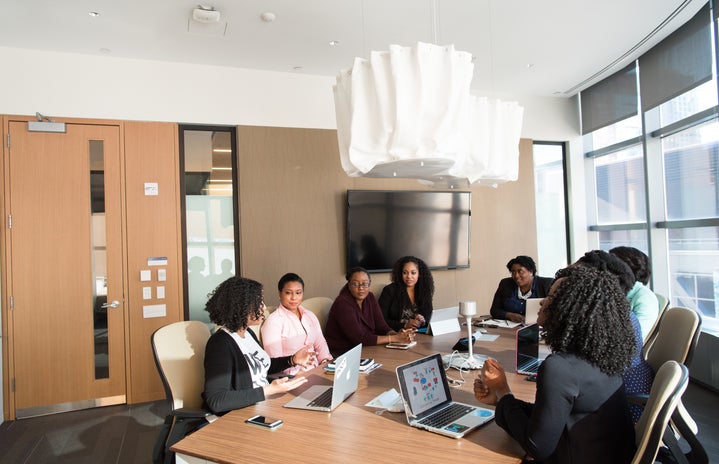Have you ever had a conversation with another student who casually drops the line, “I have an internship lined up because my mom knows the hiring manager?” Throughout the undergraduate experience, it seems as if everyone has a connection to the field they want to work in.
Building a post-grad life is important. However, it is becoming increasingly more difficult. According to a study from the Bureau of Labor Statistics, it takes on average three to six months for college students to find a job after graduation. Depending on one’s academic and occupational field, finding a job after college may be harder than expected.
College majors have a significant effect on the rate of employment. According to an article by Science & Engineering Indicators, STEM majors have an unemployment rate of 2.2% compared to non-STEM majors at 3.6%. One of the easiest ways to eliminate the jump from college to career is to build a strong network of connections that can be used when it’s time to get a job.
Networks have proven to be useful, but how does one establish them, and more importantly use them? It’s important to work towards connections that are both general and field-specific.
A good place to start and track your connections is LinkedIn. Having verbal connections is important, but LinkedIn is helpful when looking for jobs through your network and advertising your qualifications.
While this may seem silly, one of the best places to start is in your familial and social circles. Even if your parents don’t work in the field you want to go into, they add a mature factor to your network. Similarly, your parents’ co-workers can add you to their network, increasing your connections and extending an opportunity to learn from more professionals.
Additionally, college students are some of the easiest connections to make. They will be looking to rapidly increase their connections. This helps to bulk up an individual’s profile, which helps to garner attention from more established professionals on the site.
One of the best places to begin working on field-related connections is at school. Teaching assistants or Ph.D. candidates that teach classes can be great resources. Instead of directly approaching professors, which can be intimidating, contact those who have some hands-on knowledge of your desired field.
Ph.D. candidate connections are a great bridge between the academic field and the career world. These candidates have been in your shoes recently and understand how hard it is to meet people in the field you want to work in.
More often than not, they want to be helpful in any way they can. Most of these candidates worked before pursuing a higher degree, meaning that they could connect you directly to a specific institution or person. This method builds connections that are more impactful than students in the same grade, but more practical than connecting with professors.
What’s most important is that you start early. A strong network cannot be built if it is never started. It can be a daunting task, especially if you feel like you don’t know anyone. Remember that the majority of students and those who currently hold jobs did not have the most perfect network, but instead simply built out their connections where they could.




